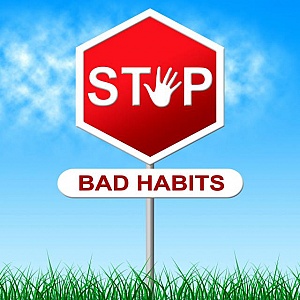Post Statistics
This post has 299 words.
This post has 1868 characters.
This post will take about 1 minute(s) to read.

Habits are coping mechanisms we use in our everyday lives. When we carry out actions without conscious thought, we interact with the world through conscious actions, thinking about it, unconscious actions where we don’t think about it because we formed habit. So why do we form habits? We create habits through repeating task or action several times to where we don’t have to think about it.
In our repetitive habits where we carry out action without thinking about it, we end up with 3 possible outcomes:
1.Neutral, where we need to go forward or backwards
2.Where we go forward
3.Where we go backwards
If we don’t take a moment to think about that outcome and learn from it, then we’ll keep repeating and making mistakes and not learning from it.
Here’s an example: Mannerism. A habit can be a mannerism as in when your dad, for example, rubbed his nose when he was nervous and you have copied this trait, while this is okay in most circumstances. However, when you’re trying to explain something to a person and doing that mannerism, that can be interpreted when someone is reading your body language that you’re lying.
So, take a moment to observe which outcome you get and for the habits that take you backwards, or take you nowhere as in standing still, take a moment to review how you’d do it differently, and by using this new method, you’ll replace bad habits with good ones.
Successful people do all the things that unsuccessful people don’t do.
Is it a habit driving your behaviour, good or bad, or is your habit a compulsion? I’ll speak to this in another blog when I talk about compulsive behaviours, meanwhile start reviewing your habits.



